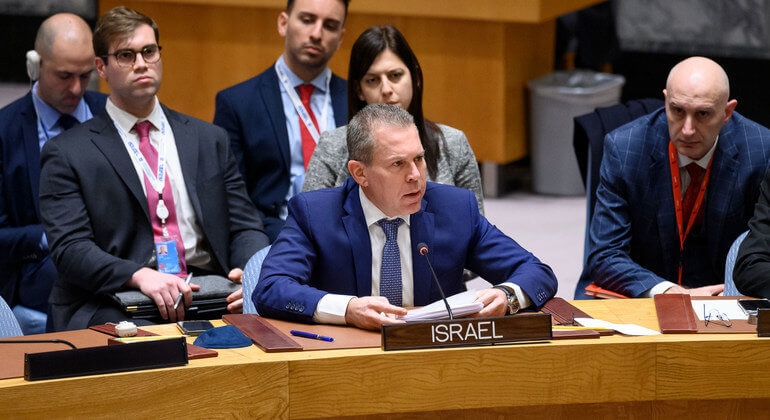On Thursday, the UN Security Council (UNSC) called Israeli National Security Minister Itamar Ben Gvir’s visit to the flashpoint Temple Mount “inflammatory” as Israel faces widespread international criticism.
UNSC’S CENSURE
In an emergency session called by the UAE and China, the UNSC noted that while Ben Gvir’s visit did not lead to any violence, his actions were problematic given the minister’s “past advocacy for changes to the status quo” of the holy sites. Noting that the situation in Jerusalem’s sacred sites is “deeply fragile,” the Council said Ben Gvir’s move “can spill over and cause violence.”
“All efforts to lower tensions should be encouraged, while provocations, inflammatory steps, unilateral actions & threats of violence must be categorically rejected.”
— United Nations (@UN) January 6, 2023
@khiari_khaled to Sec Council on situation in Middle East, incl Palestinian question. https://t.co/GoVaFDGXCz
“All efforts to lower tensions should be encouraged, while provocations, inflammatory steps, unilateral actions and threats of violence must be categorically rejected,” a UN official said during the session.
STATEMENTS BY UNSC MEMBERS
The US representative said “unilateral acts” raise tensions and undermine the prospect of a two-state solution. He stressed that preserving the status quo of the holy sites in Jerusalem is vital to peace between Israel and Palestine.
The British ambassador to the UN, Barbara Woodward, reiterated the UK’s commitment to the status quo and urged all parties to “avoid actions which inflame tensions.”
China said that the “act of Israeli officials has resulted in a fragile and grave situation” in Jerusalem and called on all parties to remain “calm and restrained” to prevent further escalation.
Russia warned that Ben Gvir’s visit to the holy site could unleash a wave of violence in the region and reminded Israel of the visit of former PM Ariel Sharon to the Temple Mount in 2000, which led to five years of violence that caused thousands of deaths on both sides.
PALESTINE AND ISRAEL’S BLAME GAME
Palestine’s representative to the UN, Riyad Mansour, claimed that Ben Gvir went to the Temple Mount to pursue his “extremist agenda” of ending the status quo. “Israel has no claim and no right to sovereignty” to the Palestinian territories, including East Jerusalem, he stressed.
Israeli ambassador to the UN Gilad Erdan condemned the UNSC for convening an emergency session despite Ben Gvir’s “quiet, orderly and uneventful visit.” He blamed Palestinians for using the site as a launchpad for attacks on Israelis.
'There is absolutely no reason that this emergency session today should be held. None'
— i24NEWS English (@i24NEWS_EN) January 5, 2023
Gilad Erdan, Israel's Representative to the #UN, speaks ahead of the UN Security Council meeting on Itamar Ben-Gvir's visit to the Temple Mount #i24NEWSDesk | @benitalevin pic.twitter.com/BNY6hMa1G8
Erdan further stressed that every Jew has a right to visit the Temple Mount, which is Judaism’s holiest site, and noted that there is no change to the status quo.
INDIA’S REMARKS
MEA spokesperson Arindam Bagchi said India’s position on the Israel-Palestine conflict is “clear and consistent.” “We are committed to supporting all efforts to resume direct negotiations between the Israelis and Palestinians to achieve a two-state solution,” Bagchi added.
He also stressed that India takes into account “Israel’s legitimate security concerns” in the region, and accordingly, calls for peace between the two sides.
BEN GVIR’S VISIT
The ultranationalist Israeli minister visited the Temple Mount/Haram Al Sharif on Wednesday despite warnings of “explosive violence” from military groups like Hamas.
STATUS QUO
Currently, the custodianship of Al-Aqsa and the surrounding holy sites are under Jordan, and Jews are not permitted to pray in the Temple Mount; instead, they are only allowed to visit the complex on select days during specified times.

